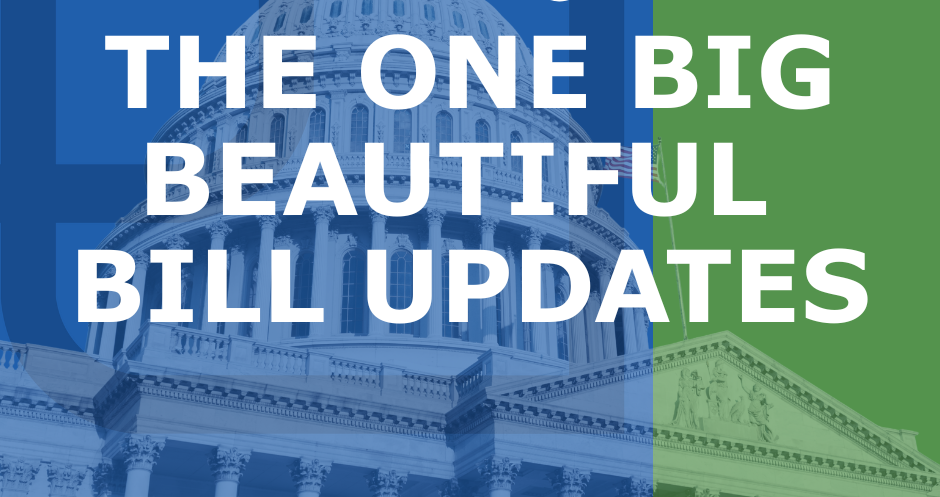The One Big Beautiful Bill Act (OBBBA) introduced several changes to the tax code, including a new savings vehicle for families: the “Trump Account” for children. These new accounts are designed to help parents, guardians, and even employers set aside money for children under 18, giving families a head start on saving for the future.

What Are Trump Accounts?
Trump Accounts are tax-advantaged savings accounts designed for children under 18. The purpose is to help families set aside money for a child’s future needs, such as education, a first home, or even retirement. While they share some similarities with traditional IRAs, Trump Accounts have unique features tailored for minors.
The $1,000 Newborn Bonus
A notable feature of the Trump Account is a one-time $1,000 government contribution for eligible newborns. Children born between 2025 and 2028 who are U.S. citizens can receive this deposit if they have a valid Social Security number and at least one parent or guardian with a valid Social Security number. This bonus is tax-free and intended to give children a financial head start.
Contributions and Limits
Each year, up to $5,000 can be contributed to a Trump Account, with the limit set to increase with inflation starting in 2027. Contributions can come from parents, guardians, or employers. Employers may contribute up to $2,500 per year for their employees’ children, and these contributions are not considered taxable income for the parent or guardian.
All contributions are made with after-tax dollars, so there is no immediate tax deduction. However, the money in the account grows tax-deferred, meaning taxes on investment earnings are postponed until funds are withdrawn.
Investment Choices
Funds in a Trump Account can be invested in low-cost mutual funds or exchange-traded funds (ETFs) that track broad stock market indexes, such as the S&P 500. The law requires these investments to have low fees and prohibits the use of leverage, aiming to keep costs down and reduce risk.
Withdrawals and Usage
Withdrawals from a Trump Account are generally not allowed until the child turns 18, except in limited circumstances. After age 18, the account functions similarly to a traditional IRA. Withdrawals are taxed as ordinary income, and early withdrawals (before age 59½) typically incur a 10% penalty. However, exceptions exist for higher education expenses, first-time home purchases (up to $10,000), certain disability expenses, and in cases of domestic abuse or natural disaster. There is also a $5,000 exception for new parents.
Comparing Trump Accounts to Other Savings Options
Trump Accounts are one of several ways to save for a child’s future. For example, 529 college savings plans offer tax-free withdrawals for qualified education expenses, which may be preferable if college savings is the primary goal. Roth IRAs, available to children with earned income, can also provide tax-free withdrawals in retirement. Trump Accounts are designed to be a flexible, long-term savings tool that can complement other accounts.
Getting Help with Trump Accounts
There remain significant uncertainties regarding the implementation and operation of the Trump Accounts established by the One Big Beautiful Bill Act (OBBBA). While the statute provides the basic framework for these accounts—including eligibility, contribution limits, and tax treatment—many practical and technical details are not yet fully defined. Key questions persist about employer participation, potential ERISA implications, reporting requirements, and the precise mechanics of account administration. Given these ambiguities, it is anticipated that the IRS and Treasury Department will issue further guidance, regulations, or FAQs to clarify outstanding issues and ensure consistent application of the law.
Understanding new tax laws and savings options can be complex. If you have questions about Trump Accounts, eligibility, contribution limits, or how these accounts fit into your overall financial plan, please feel free to reach out to us at Rudler PSC. Our team is here to help you evaluate your options and provide guidance so you can make informed decisions for your family’s future.
Important: These are all new changes, and further guidance from the IRS and Treasury Department is expected. The details may change as new regulations and clarifications are issued. Be sure to consult with your tax advisor to understand how these changes affect your specific situation.
RUDLER, PSC CPAs and Business Advisors
This week's Rudler Review is presented by Alexis Ludtke, CPA.
If you would like to discuss your particular situation, contact Alexis at 859-331-1717.

As part of Rudler, PSC's commitment to true proactive client partnerships, we have encouraged our professionals to specialize in their areas of interest, providing clients with specialized knowledge and strategic relationships. Be sure to receive future Rudler Reviews for advice from our experts, sign up today !